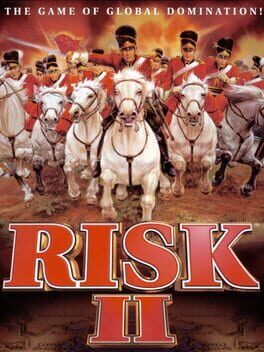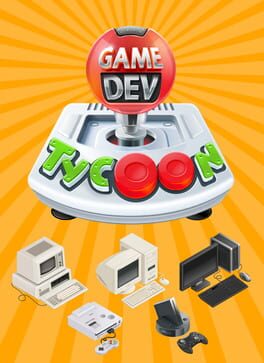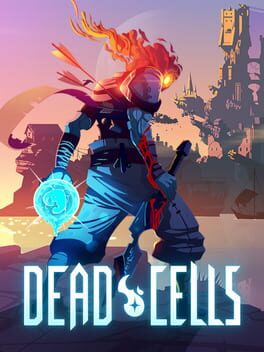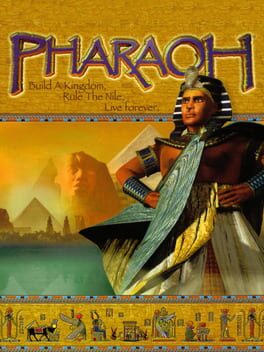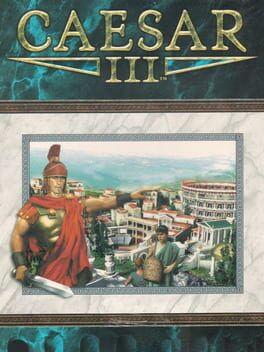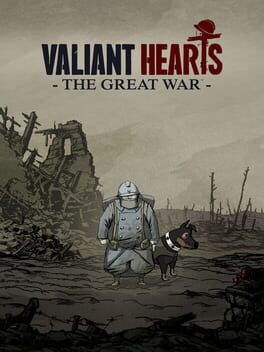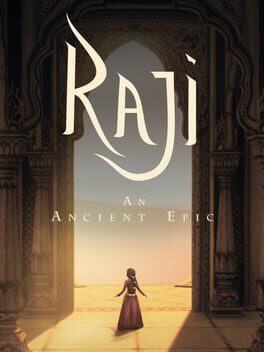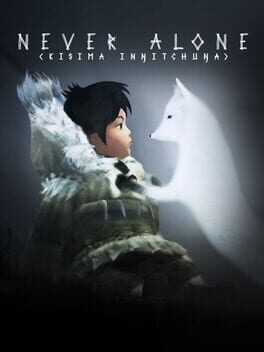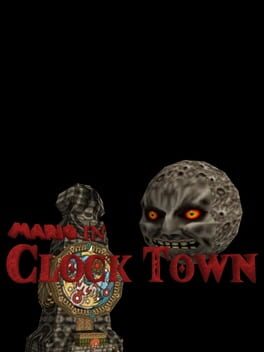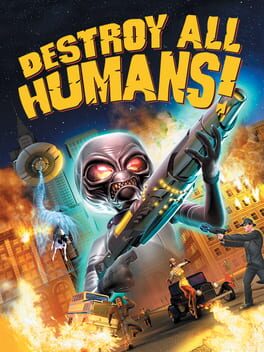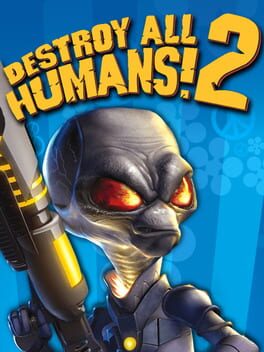Herodelic
100 Reviews liked by Herodelic
Risk II
2000
Risk II is a very nostalgic game for me because it was among the first video games i've ever played.
It successfully captures the strategic depth and core rules/mechanics of the original board game. Basically, in this game you need to conquer the world.
The map is well-detailed, and the troop animations during battles add some flavour to the experience. The user interface is intuitive, allowing players to easily manage their armies and territories. The inclusion of detailed statistics and battle outcomes helps players refine their strategies and improve their gameplay.
The AI adapts to different strategies, however sometimes it gets easy to read as it has its own limits.
Overall, Risk II is a well-crafted strategy game that successfully translates the classic board game experience to the digital realm.
It successfully captures the strategic depth and core rules/mechanics of the original board game. Basically, in this game you need to conquer the world.
The map is well-detailed, and the troop animations during battles add some flavour to the experience. The user interface is intuitive, allowing players to easily manage their armies and territories. The inclusion of detailed statistics and battle outcomes helps players refine their strategies and improve their gameplay.
The AI adapts to different strategies, however sometimes it gets easy to read as it has its own limits.
Overall, Risk II is a well-crafted strategy game that successfully translates the classic board game experience to the digital realm.
Game Dev Tycoon
2012
Game Dev Tycoon is the only game i'ever bought on my phone because you know, if you pirate it you'll have no chance of getting too far into the game. At some point your games will start to get pirated and you'll go bankrupt eventually.
You start from a small garage and you end up growing into a major industry leader. I love the fact that the game begins in the early days of the gaming industry (around the 80s) and progresses through several decades, the furthest I got was to 300 years in the future 😅
The game is very engaging and it gives you freedom, you can create games by selecting various genres, themes, and platforms, and then manage the development process by allocating resources to different aspects such as graphics, sound, gameplay etc.
The game's biggest strength is it's replayability. As you progress, you unlock new technologies, game genres, and research options, allowing for increasingly sophisticated game development. There's also the challenge of staying ahead of industry trends and competitors. It adds a layer of strategic depth that keeps the gameplay interesting over multiple playthroughs.
The biggest flaw of the game is that at some point, you reach endgame and you stop unlocking new gameplay elements. I wish they supported this game for longer and added more depth to it.
All in all, this is a neat and unique idea of a game that gets addictive really quick.
Im sad that i never developed a game that got a pure 11/10 rating:((
You start from a small garage and you end up growing into a major industry leader. I love the fact that the game begins in the early days of the gaming industry (around the 80s) and progresses through several decades, the furthest I got was to 300 years in the future 😅
The game is very engaging and it gives you freedom, you can create games by selecting various genres, themes, and platforms, and then manage the development process by allocating resources to different aspects such as graphics, sound, gameplay etc.
The game's biggest strength is it's replayability. As you progress, you unlock new technologies, game genres, and research options, allowing for increasingly sophisticated game development. There's also the challenge of staying ahead of industry trends and competitors. It adds a layer of strategic depth that keeps the gameplay interesting over multiple playthroughs.
The biggest flaw of the game is that at some point, you reach endgame and you stop unlocking new gameplay elements. I wish they supported this game for longer and added more depth to it.
All in all, this is a neat and unique idea of a game that gets addictive really quick.
Im sad that i never developed a game that got a pure 11/10 rating:((
Dead Cells
2017
Dead Cells faz parte da última geração de roguelikes responsáveis por popularizar o gênero. um tipo de jogo que era um tanto quanto tímido no começo da década passada e que encontrou seu reinado no fim dela. nem nos meus sonhos mais insanos eu imaginaria, lá atrás jogando Magicite ou Hammerwatch, que as pessoas se importariam em jogar esse tipo de coisa. mas nessa última leva, com Dead Cells, Hades, Slay the Spire e Risk of Rain 2, na verdade eu tô já é de SACO CHEIO de roguelikes ahueahuaeuh
esse jogo é muito bom. acho genial a geração de mapa que, nunca deixa de ser um metroidvania (só jogando pra entender). o combate e a movimentação disso é uma delícia delícia, algo que se dá usando a mesma técnica de 3D -> 2D de DKC. a trilha sonora desse jogo tá grudada na minha mente e não ajuda muito eu continuar ouvindo no Spotify. uma das coisas mais legais também, é a quantidade de referências. esse jogo é entupido de referências, o que é razoavelmente comum em jogos indie mas não nessa proporção lol
algo que descobri entrando no site da dev, Motion Twin, é que eles são uns comunistas safados que recebem igualmente o mesmo salário. a logo deles é uma literal estrela vermelha. então, dedico aqui um sinceríssimo aperto de mão aos companheiros de luta que criaram uma parada foda dessas. aguardo ansiosamente o desenho que vai sair, mesmo achando meio paia terem trocado esse protagonista da capa boladão por aquele foguinho ciclope carismático 😔👍
esse jogo é muito bom. acho genial a geração de mapa que, nunca deixa de ser um metroidvania (só jogando pra entender). o combate e a movimentação disso é uma delícia delícia, algo que se dá usando a mesma técnica de 3D -> 2D de DKC. a trilha sonora desse jogo tá grudada na minha mente e não ajuda muito eu continuar ouvindo no Spotify. uma das coisas mais legais também, é a quantidade de referências. esse jogo é entupido de referências, o que é razoavelmente comum em jogos indie mas não nessa proporção lol
algo que descobri entrando no site da dev, Motion Twin, é que eles são uns comunistas safados que recebem igualmente o mesmo salário. a logo deles é uma literal estrela vermelha. então, dedico aqui um sinceríssimo aperto de mão aos companheiros de luta que criaram uma parada foda dessas. aguardo ansiosamente o desenho que vai sair, mesmo achando meio paia terem trocado esse protagonista da capa boladão por aquele foguinho ciclope carismático 😔👍
Alan Wake
2010
I’ve never watched Twin Peaks. Not for any particular reason, mind you — I’m bad at watching episodic things and there sure are a lot of them out there — though, given just how many things it’s influenced, perhaps I should get around to it. If, in part, so I can see just how much it influences Alan Wake. It’s not like the game is lost to me just because I didn’t do the required reading — it’s not solely beholden on its references, and even if it was it still draws from other things (like Stephen King, House of Leaves, The Twilight Zone, etc.) that are far more in my wheelhouse — but it does feel like I’m missing a piece of the puzzle, knowing that it’s an influence yet not knowing how it impacts the work in question. Is it merely how the game is set in a small town with a dark secret? Is it the cast of offbeat, often kooky, often exaggerated townspeople? Is it the way the game often calls its framing into account: how it frequently calls into question whether the events depicted are real, or representative of something else entirely? I can guess, but I can only guess — I don’t even know whether that last one is something Twin Peaks even does. I suppose it doesn’t super matter, but, like, usually when I go through something I wanna learn alllllllll about it. And in the case of something like Alan Wake — where it’s operating on multiple different narrative layers, where it’s in some ways actively seeking analysis and interpretation from the audience — I liked it enough to feel like I should maybe do my homework. At least before I delve into the series further.
I’ll start with the easiest thing to talk about, if, mainly, for the sake of getting a foothold: I wasn’t expecting this to be as combat-heavy as it was. I knew there was combat, of course — that the game carried a balance between walking-sim-esque segments where you explored the town/chatted with the inhabitants vs. pretty direct gameplay segments where you fought against The Darkness — but I didn’t think, going in, that the ratio would veer so heavily towards the latter. It’s fun, though! It’s certainly much more action-oriented than survival horror — much like a Resident Evil 4, even down to the way your flashlight functions as a laser pointer for your weapons — yet sticks the landing much more than a non-zero amount of its contemporaries do. What I think sells it is its simplicity. Near every encounter comes down to shining some sort of light on them to remove their defences before using some sort of weapon to kill them dead. You don’t even need to aim for the head — bodyshots do the same damage, it’s just mostly a matter of getting them weak in the first place, making sure you have enough ammo on hand, then letting rip. There are remarkably few enemy types (you have your normal guy, your tough guy, your fast guy, your chainsaw guy, but nothing much more than that) — the diversity primarily lies in the type of encounter: are you getting intercepted from point A to point B? Do you have to battle your way through the hoard? Do you have to hold out against the horde? There are a lot of different situations you find yourself in, and through that a lot of situational tools that make each encounter feel unique, from your environment, to the things around you, to the tools you have with you.
Which, speaking of? By and large? Fun to use! Your pistol is shockingly capable: it’s accurate, it has a fun kick to it, it kills enemies in three hits, but if you don’t have the time or the ammo, you can instead use the shotgun or hunting rifle to obliterate the enemy where they stand. If that’s not enough, if you’re in the middle of being overwhelmed… man I love love love how the game just gives you its equivalent of the rocket launcher. And lets you choose how to manage its resources! Do you choose to use it now or later? If you do it now, do you know if you’re going to get more ammo for it later? If you don’t use it now, do you know if what’s down the road is even worth using it later? Of course, you can bypass all these problems by just finding enough treasure chests to make sure you have ammo forever, which…
Leads me to another thing I love: how much the game rewards exploration. The environments you explore are huge, and oftentimes have much more than the player ever has to cover. You can keep going down the path you’re meant to, and the game’s compass (once you notice it) does a good job at delineating what’s “the path” and what’s comparatively more optional, but should you want to look around, you’re rewarded in a variety of ways. If you want a little more extra story content, you can find radios lying around, pages you can read, even little Twilight Zone knockoff TV episodes the game allows you to watch in full. If you want gameplay advantages for going the extra mile, the chests/lootboxes give you more flare gun ammo and flashbangs than you’re ever going to need - and often give you one of the shotgun/hunting rifle before the level would otherwise let you have it. And if you just like exploring for exploring’s sake, you can sate Alan Wake’s addiction to coffee by finding it in the most unlikely of places. The game lets you go above and beyond, as well. Near the beginning, you’re at the bottom of a chasm, a rope bridge across from the cabin you’ve been heading to. You can go across like the game directs you to… or you can instead climb all the way back up the cliff… just to get a coffee thermos. You never have to go up there, and you never get the chance to go up there again. The game, in general, really encourages you to go off the beaten path - offering multiple incentives to entice you to do so, but not only that, the game and the level design lets you go to so many nooks, so many side routes, so many places you never otherwise need to go just to facilitate all these collectables. The world is way bigger than it has to be. To some extent, that’s commendable.
And it’s so fascinating how much focus there is on how it plays, given, ostensibly, that it's a game that’s… primarily all about its story. Perhaps it’s a remnant of when Alan Wake was initially meant to be an open-world game with a day/night cycle — much like, of all things, Deadly Premonition — though this then makes the result… feel somewhat imbalanced, where often it feels like you’re going through looooong gameplay segments and the narrative is being left by the wayside. Not to say the latter isn’t effective, though! As… little as it feels like we spend our time in the town, I liked the glimpses of it that we got! Specifically I loved a lot of the bit characters/NPCs. They lean a little off-beat, a little eccentric, but yet never so much that they don’t feel like real people — more in that sense of, like, that one person from your hometown everybody knows who's a liiiiiiitle bit off their rocker. They’re cute, they’re fun, and I like how they turn Alan into a straight man for whatever antics they force upon him — waitress Rose's obsession with him immediately blowing his cover the moment he enters town, or FBI Hemingway's referring to him solely by other American writers. There’s other little things I like too: the Twilight Zone parodies you find on TVs around the place are fairly on point (and made me realize just how much it kind of is a more adult Goosebumps episode lmao), and the radio shows do a lot to let the world around you feel lived in, and let the writing seep in even during sections where you’re just traversing from one place to another. The manuscript pages are fun for this too: sometimes they recap what just happened, sometimes they tell you what’s about to happen, sometimes they let you know what’s happening beyond your immediate scope, and sometimes they’re just really cute bits of narrative, like the one where Alan picks up a page about him picking up a page and it enters a recursion loop. Every person you talk to, every sign you walk past, every little thing around you helps build up the world around you. To some extent this game could be a case study in how much the micro-level stuff matters in building up a greater picture.
On a macro level — the overarching narrative — it’s… certainly ambitious, but ultimately I reckon sticks the landing. The game draws from pulp novels: not just from the novels themselves, but also how the personal lives of the authors would impact their work — how a lot of these novels had writers/some-form-of-self-insert as the main character, Stephen King not even remembering writing Cujo because he was on so much coke at the time, etc. It’s metatextual, as much a story about itself, and the writing process, as much as it is about a story about Alan Wake fighting against The Taken. The in-universe manuscript the plot of the game is forced to follow is as much of a first draft as anything written, in, say, NaNoWriMo, and the game has so much fun with that: plot holes, kibble, deux ex machinae are present yet accounted for. The story will often turn on a dime, often into stock plots or cop-out endings, much in the way someone would if they’re writing to get words out with no idea of where they’re actually going. Characters or things appear, are professed as important, then will drop out of the plot entirely the moment their scene ends. Even some of the kooky characters will make sense from that lens — an author having to write something fast rather than write it well, relying on cliches that seem much less true to life once those characters start walking and talking in a 3D space. I also enjoy how much the writer makes his way into the work. I’m… not necessarily familiar with Sam Lake’s works, nor do I know much of Remedy as a whole, but I like what I see: the way Alan’s attempt at writing something other than a noir thriller results in a total nightmare of a creation process, how the game stops at a halt so that the in-universe version of a band whose members Sam Lake is friends with can play a few of their songs. To some extent, every work of writing has a bit of the author in it — their experiences, their way of thinking, the specific things they’re a fan of — and often by going through these works one gets to learn about the one who created it along the way. Metatext (or, rather, metafiction) often brings this relationship to the forefront through its continual self-analysis, and Alan Wake, narratively, shines at its brightest on this front, presenting a story that is as much about the process of writing as it is about its literal events, and in turn letting us see just a little about the mind behind it.
There’s… a couple things that bring this game down, mostly on the gameplay end. The game’s use of vehicles leaves… something to be desired: they’re often required for traversal/combat within certain sections, yet trying to use them for their intended purpose is oftentimes clunky, accidentally getting the car stuck on a surface when trying to U-turn it in the direction of the enemies, accidentally drifting it off a cliff trying to make a simple turn. Not even going into how easily it is for the camera to make you motion sick going into certain cars. While I do know that survival horror isn’t meant to be ‘fun’ by definition, a lot of the sections where the game takes away your items I felt were rather the lowlight, often feeling as if they were total crapshoots as to whether I could run through before I got wombo combo’d to death. Some levels — again, perhaps, because of the game’s initial premise as open world — feel rather too long, and often seem to be there to fill time, more than anything. The final level, in particular, has almost nothing story-wise between beginning and end, and while you can pick up pages/listen to Alan’s thoughts the plot doesn’t actually progress until you’ve reached the final section, leaving like, two hours of combat for combat’s sake in-between. I guess it’s a good thing they were able to use all those assets from when it was originally open world? It just… maybe could’ve benefited from being a little more streamlined. Or at least, in the final level’s case, having a bit more between A and B.
As a whole, though, that doesn’t fully detract from near everything this game has going for it. From how well the gameplay does the action horror formula — doing a lot from what little it has, and just from how much the game world encourages and rewards random exploration — to how well the story functions both as a metafiction and as a narrative in its own right, to even the most minor of things: I legit did the Leo pointing meme when I heard, of all Nick Cave songs, Up Jumped the Devil playing on a radio in the woods. It’s not quite a tour de force, and it was much more of a cult classic than a blockbuster when it released (given it released right next to Red Dead Redemption), but… to an extent, that feels appropriate. Something that goes in as many different directions as this does I think works best as an unsung darling. Besides, Twin Peaks, as beloved as it was, didn’t do too well in the ratings either.
…I think. Don’t quote me on that.
(8/10.)
I’ll start with the easiest thing to talk about, if, mainly, for the sake of getting a foothold: I wasn’t expecting this to be as combat-heavy as it was. I knew there was combat, of course — that the game carried a balance between walking-sim-esque segments where you explored the town/chatted with the inhabitants vs. pretty direct gameplay segments where you fought against The Darkness — but I didn’t think, going in, that the ratio would veer so heavily towards the latter. It’s fun, though! It’s certainly much more action-oriented than survival horror — much like a Resident Evil 4, even down to the way your flashlight functions as a laser pointer for your weapons — yet sticks the landing much more than a non-zero amount of its contemporaries do. What I think sells it is its simplicity. Near every encounter comes down to shining some sort of light on them to remove their defences before using some sort of weapon to kill them dead. You don’t even need to aim for the head — bodyshots do the same damage, it’s just mostly a matter of getting them weak in the first place, making sure you have enough ammo on hand, then letting rip. There are remarkably few enemy types (you have your normal guy, your tough guy, your fast guy, your chainsaw guy, but nothing much more than that) — the diversity primarily lies in the type of encounter: are you getting intercepted from point A to point B? Do you have to battle your way through the hoard? Do you have to hold out against the horde? There are a lot of different situations you find yourself in, and through that a lot of situational tools that make each encounter feel unique, from your environment, to the things around you, to the tools you have with you.
Which, speaking of? By and large? Fun to use! Your pistol is shockingly capable: it’s accurate, it has a fun kick to it, it kills enemies in three hits, but if you don’t have the time or the ammo, you can instead use the shotgun or hunting rifle to obliterate the enemy where they stand. If that’s not enough, if you’re in the middle of being overwhelmed… man I love love love how the game just gives you its equivalent of the rocket launcher. And lets you choose how to manage its resources! Do you choose to use it now or later? If you do it now, do you know if you’re going to get more ammo for it later? If you don’t use it now, do you know if what’s down the road is even worth using it later? Of course, you can bypass all these problems by just finding enough treasure chests to make sure you have ammo forever, which…
Leads me to another thing I love: how much the game rewards exploration. The environments you explore are huge, and oftentimes have much more than the player ever has to cover. You can keep going down the path you’re meant to, and the game’s compass (once you notice it) does a good job at delineating what’s “the path” and what’s comparatively more optional, but should you want to look around, you’re rewarded in a variety of ways. If you want a little more extra story content, you can find radios lying around, pages you can read, even little Twilight Zone knockoff TV episodes the game allows you to watch in full. If you want gameplay advantages for going the extra mile, the chests/lootboxes give you more flare gun ammo and flashbangs than you’re ever going to need - and often give you one of the shotgun/hunting rifle before the level would otherwise let you have it. And if you just like exploring for exploring’s sake, you can sate Alan Wake’s addiction to coffee by finding it in the most unlikely of places. The game lets you go above and beyond, as well. Near the beginning, you’re at the bottom of a chasm, a rope bridge across from the cabin you’ve been heading to. You can go across like the game directs you to… or you can instead climb all the way back up the cliff… just to get a coffee thermos. You never have to go up there, and you never get the chance to go up there again. The game, in general, really encourages you to go off the beaten path - offering multiple incentives to entice you to do so, but not only that, the game and the level design lets you go to so many nooks, so many side routes, so many places you never otherwise need to go just to facilitate all these collectables. The world is way bigger than it has to be. To some extent, that’s commendable.
And it’s so fascinating how much focus there is on how it plays, given, ostensibly, that it's a game that’s… primarily all about its story. Perhaps it’s a remnant of when Alan Wake was initially meant to be an open-world game with a day/night cycle — much like, of all things, Deadly Premonition — though this then makes the result… feel somewhat imbalanced, where often it feels like you’re going through looooong gameplay segments and the narrative is being left by the wayside. Not to say the latter isn’t effective, though! As… little as it feels like we spend our time in the town, I liked the glimpses of it that we got! Specifically I loved a lot of the bit characters/NPCs. They lean a little off-beat, a little eccentric, but yet never so much that they don’t feel like real people — more in that sense of, like, that one person from your hometown everybody knows who's a liiiiiiitle bit off their rocker. They’re cute, they’re fun, and I like how they turn Alan into a straight man for whatever antics they force upon him — waitress Rose's obsession with him immediately blowing his cover the moment he enters town, or FBI Hemingway's referring to him solely by other American writers. There’s other little things I like too: the Twilight Zone parodies you find on TVs around the place are fairly on point (and made me realize just how much it kind of is a more adult Goosebumps episode lmao), and the radio shows do a lot to let the world around you feel lived in, and let the writing seep in even during sections where you’re just traversing from one place to another. The manuscript pages are fun for this too: sometimes they recap what just happened, sometimes they tell you what’s about to happen, sometimes they let you know what’s happening beyond your immediate scope, and sometimes they’re just really cute bits of narrative, like the one where Alan picks up a page about him picking up a page and it enters a recursion loop. Every person you talk to, every sign you walk past, every little thing around you helps build up the world around you. To some extent this game could be a case study in how much the micro-level stuff matters in building up a greater picture.
On a macro level — the overarching narrative — it’s… certainly ambitious, but ultimately I reckon sticks the landing. The game draws from pulp novels: not just from the novels themselves, but also how the personal lives of the authors would impact their work — how a lot of these novels had writers/some-form-of-self-insert as the main character, Stephen King not even remembering writing Cujo because he was on so much coke at the time, etc. It’s metatextual, as much a story about itself, and the writing process, as much as it is about a story about Alan Wake fighting against The Taken. The in-universe manuscript the plot of the game is forced to follow is as much of a first draft as anything written, in, say, NaNoWriMo, and the game has so much fun with that: plot holes, kibble, deux ex machinae are present yet accounted for. The story will often turn on a dime, often into stock plots or cop-out endings, much in the way someone would if they’re writing to get words out with no idea of where they’re actually going. Characters or things appear, are professed as important, then will drop out of the plot entirely the moment their scene ends. Even some of the kooky characters will make sense from that lens — an author having to write something fast rather than write it well, relying on cliches that seem much less true to life once those characters start walking and talking in a 3D space. I also enjoy how much the writer makes his way into the work. I’m… not necessarily familiar with Sam Lake’s works, nor do I know much of Remedy as a whole, but I like what I see: the way Alan’s attempt at writing something other than a noir thriller results in a total nightmare of a creation process, how the game stops at a halt so that the in-universe version of a band whose members Sam Lake is friends with can play a few of their songs. To some extent, every work of writing has a bit of the author in it — their experiences, their way of thinking, the specific things they’re a fan of — and often by going through these works one gets to learn about the one who created it along the way. Metatext (or, rather, metafiction) often brings this relationship to the forefront through its continual self-analysis, and Alan Wake, narratively, shines at its brightest on this front, presenting a story that is as much about the process of writing as it is about its literal events, and in turn letting us see just a little about the mind behind it.
There’s… a couple things that bring this game down, mostly on the gameplay end. The game’s use of vehicles leaves… something to be desired: they’re often required for traversal/combat within certain sections, yet trying to use them for their intended purpose is oftentimes clunky, accidentally getting the car stuck on a surface when trying to U-turn it in the direction of the enemies, accidentally drifting it off a cliff trying to make a simple turn. Not even going into how easily it is for the camera to make you motion sick going into certain cars. While I do know that survival horror isn’t meant to be ‘fun’ by definition, a lot of the sections where the game takes away your items I felt were rather the lowlight, often feeling as if they were total crapshoots as to whether I could run through before I got wombo combo’d to death. Some levels — again, perhaps, because of the game’s initial premise as open world — feel rather too long, and often seem to be there to fill time, more than anything. The final level, in particular, has almost nothing story-wise between beginning and end, and while you can pick up pages/listen to Alan’s thoughts the plot doesn’t actually progress until you’ve reached the final section, leaving like, two hours of combat for combat’s sake in-between. I guess it’s a good thing they were able to use all those assets from when it was originally open world? It just… maybe could’ve benefited from being a little more streamlined. Or at least, in the final level’s case, having a bit more between A and B.
As a whole, though, that doesn’t fully detract from near everything this game has going for it. From how well the gameplay does the action horror formula — doing a lot from what little it has, and just from how much the game world encourages and rewards random exploration — to how well the story functions both as a metafiction and as a narrative in its own right, to even the most minor of things: I legit did the Leo pointing meme when I heard, of all Nick Cave songs, Up Jumped the Devil playing on a radio in the woods. It’s not quite a tour de force, and it was much more of a cult classic than a blockbuster when it released (given it released right next to Red Dead Redemption), but… to an extent, that feels appropriate. Something that goes in as many different directions as this does I think works best as an unsung darling. Besides, Twin Peaks, as beloved as it was, didn’t do too well in the ratings either.
…I think. Don’t quote me on that.
(8/10.)
Final Fantasy X
2001
Even knowing the ending will not prepare you for it.
What a beautiful game this is, with one of the best, if not the best, turn based combat systems.
I could write more, so much more, about the characters and how much I love them, but I think I'll quote my favs instead:
"There is no need for fear. Kimahri will go with you" (it is very important that Kimahri goes with you, trust me, he's the best).
"You don't have to smile, if it's too tough."
"HAHAHAHAHAHA"
What a beautiful game this is, with one of the best, if not the best, turn based combat systems.
I could write more, so much more, about the characters and how much I love them, but I think I'll quote my favs instead:
"There is no need for fear. Kimahri will go with you" (it is very important that Kimahri goes with you, trust me, he's the best).
"You don't have to smile, if it's too tough."
"HAHAHAHAHAHA"
Pharaoh
1999
𓋹𓁈𓃠𓅓
'Pharaoh' still remains a timeless gem in the world of city-building strategy games. For a game released in 1999, it still holds up very well today thanks to its gameplay nature, numerous city management mechanics, and rich historical setting.
Seriously, building all those temples and ornate monuments is a very satisfying process. There's a decent attention to detail in the game, this ancient Egyptian theme really is a journey back in time.
But i must say, the game is quite hard. The scenarios are challenging but at least they keep you coming back for more.
Also, the soundtrack is very memorable.
"People need jobs"
"Not enough workers available" 🤦♂️
𓅓𓃠𓁈𓋹
'Pharaoh' still remains a timeless gem in the world of city-building strategy games. For a game released in 1999, it still holds up very well today thanks to its gameplay nature, numerous city management mechanics, and rich historical setting.
Seriously, building all those temples and ornate monuments is a very satisfying process. There's a decent attention to detail in the game, this ancient Egyptian theme really is a journey back in time.
But i must say, the game is quite hard. The scenarios are challenging but at least they keep you coming back for more.
Also, the soundtrack is very memorable.
"People need jobs"
"Not enough workers available" 🤦♂️
𓅓𓃠𓁈𓋹
Caesar III
1998
🏛️🕊️
Caesar III is yet another timeless classic from Sierra Entertainment that stands the test of time.
Great historical setting, recreating ancient Rome is remarkable. It's an engaging experience but also a hard game. Managing resources, infrastructure, and citizen happiness makes it a challenging game, there's usually always something that doesn't go well.
I liked how you need to always please the gods by building them temples, how you need to build aqeuducts to bring water to the population, to keep the population entertained by building theatres and so on.
Just like Pharaoh, this game is a classic that is worth the visit.
Caesar III is yet another timeless classic from Sierra Entertainment that stands the test of time.
Great historical setting, recreating ancient Rome is remarkable. It's an engaging experience but also a hard game. Managing resources, infrastructure, and citizen happiness makes it a challenging game, there's usually always something that doesn't go well.
I liked how you need to always please the gods by building them temples, how you need to build aqeuducts to bring water to the population, to keep the population entertained by building theatres and so on.
Just like Pharaoh, this game is a classic that is worth the visit.
This game was a big surprise. An emotionally gripping journey through the tragedies of World War I that uses beautiful art style, captivating storytelling and immersive gameplay mechanics.
The story of Valiant Hearts excels in capturing the human side of war, focusing on the experiences of ordinary people caught up in horrors of war. It's a deeply moving story, with great characters and each one has their own personal narrative.
I really loved this game, can't wait to try the new one someday.
The story of Valiant Hearts excels in capturing the human side of war, focusing on the experiences of ordinary people caught up in horrors of war. It's a deeply moving story, with great characters and each one has their own personal narrative.
I really loved this game, can't wait to try the new one someday.
The Hindu culture is one of my favorite things and the likes of Ramayana, Bhagavad Gita or Mahabharata are among my favorite pieces of literature.
That being said, a game about the hindu mythology/religion will always catch my attention and Raji is no exception.
Lets talk about the story.. it's nothing mind blowing but its alright. It's about a girl named Raji that goes on an adventure to save her little brother from the Demon Lord Mahabalasura.
Throughout her journey she is assisted by Durga and Bhagvan Vishnu, which is crazy because both of them are the narrators in this game, literally Vishnu, God himself is the narrator and he sounds great. In terms of voice acting, Durga + Vishnu are Great, Raji herself... not so much.
I loved how the game presented stories about different deities like Lord Shiva, the 10 avatars of Lord Vishnu, Ganesha or stories about different events like the birth of the Nagas.
The scenery and backgrounds were beautiful but for what is worth, I think this game could have been better in terms of gameplay. I did not like the combat, I played about an hour of the game on normal difficulty and i must admit, I hate playing games on easy but it is what i did with Raji, I started the game again on easy just so i can enjoy the game more, I really didn't like the combat and i wanted it to be almost non existent.
Also, the upgrade system didn't make that much sense, to this day i still don't know what's the matter with it, its really rough.
I can recommend this game on a cheaper deal, its a nice 4 hours long game that's based around a culture/religion that should be featured more in video games as long as the games remain respectful and they don't mock the culture. A big percent of video games are either set in the USA or Japan so when i hear about a game that's set in a different place, im all ears. That's probably why Assassin's Creed is a comfort series for me, even if one AC game turns out to be mediocre, at least i get to explore a nice setting.
That being said, a game about the hindu mythology/religion will always catch my attention and Raji is no exception.
Lets talk about the story.. it's nothing mind blowing but its alright. It's about a girl named Raji that goes on an adventure to save her little brother from the Demon Lord Mahabalasura.
Throughout her journey she is assisted by Durga and Bhagvan Vishnu, which is crazy because both of them are the narrators in this game, literally Vishnu, God himself is the narrator and he sounds great. In terms of voice acting, Durga + Vishnu are Great, Raji herself... not so much.
I loved how the game presented stories about different deities like Lord Shiva, the 10 avatars of Lord Vishnu, Ganesha or stories about different events like the birth of the Nagas.
The scenery and backgrounds were beautiful but for what is worth, I think this game could have been better in terms of gameplay. I did not like the combat, I played about an hour of the game on normal difficulty and i must admit, I hate playing games on easy but it is what i did with Raji, I started the game again on easy just so i can enjoy the game more, I really didn't like the combat and i wanted it to be almost non existent.
Also, the upgrade system didn't make that much sense, to this day i still don't know what's the matter with it, its really rough.
I can recommend this game on a cheaper deal, its a nice 4 hours long game that's based around a culture/religion that should be featured more in video games as long as the games remain respectful and they don't mock the culture. A big percent of video games are either set in the USA or Japan so when i hear about a game that's set in a different place, im all ears. That's probably why Assassin's Creed is a comfort series for me, even if one AC game turns out to be mediocre, at least i get to explore a nice setting.
It's not every day that you see a game in the Iñupiaq language. Never Alone is a charming and short game based on a native Alaskan folk tale where you explore the arctic scenery while controlling Nuna and her fox companion.
I must say, i love how this language sounds and also the narrator's voice, it's a mesmerizing one, it feels different.
The cultural insights and beautiful storytelling make it a unique and worthwhile experience and for a few dollars i'd say this is a decent and relaxing 3 hours long game that doesn't overstay its welcome.
I must say, i love how this language sounds and also the narrator's voice, it's a mesmerizing one, it feels different.
The cultural insights and beautiful storytelling make it a unique and worthwhile experience and for a few dollars i'd say this is a decent and relaxing 3 hours long game that doesn't overstay its welcome.
Mario In Clock Town
2022
The dialogue is ass but it's fun otherwise. Idk why but I love putting game characters in other games' worlds and making them complete objectives in that world, so this tickles my fancy even if it's not very deep or anything. This concept could be pretty fun if they took it farther.
The boss fight was also pretty bad. You can't even see the bombs, and there's apparently only three of them? Why only three? I spent several tries going for one only to check closer and realize there wasn't one there for seemingly no reason.
The boss fight was also pretty bad. You can't even see the bombs, and there's apparently only three of them? Why only three? I spent several tries going for one only to check closer and realize there wasn't one there for seemingly no reason.
Fallout: New Vegas
2010
The most immersive game I have ever played.
"Player immersion" is a concept often at the forefront of AAA game development, whether that be creating extremely realistic graphics, telling a cinematic story or even the idea of using AI dialogue in NPCs to simulate a real life conversation- all of these ideas have one thing in common. They strive to create a truly immersive experience for the player. Fallout: New Vegas does not have any of these traits and yet is the most immersive experience I have ever had in any videogame.
For example, Red Dead Redemption II, another AAA open world game, boasts a beautiful world with compelling stories and character animations that resemble real life and yet, I never feel truly immersed in this world. Sure horse balls shrink in cold weather and Arthur Morgan will physically load a weapon with different ammo each and every time you want to switch ammo types and while yes this is realistic, the game as a whole is not immersive. You can shoot up entire towns and the story will still play out the same and NPCs outside of the story don’t really matter at all or have anything interesting to say outside of mentioning a small quest. This isn't to say that RDR2 is a bad game, far from it! But rather, that Fallout: New Vegas is able to build a truly immersive world solely with stellar writing and player choice.
Right from the get-go you’re given the main quest. You were shot in the head, go find who did it. Of course, the logical next step is to ask around town about the man who shot you but what if you just wanted to shoot up the whole town? Well you can! And if you do, the main quest marker is just GONE. You’ve killed the person who had information on the guy who shot you, so of course you’re gonna have no idea where else to go. Any other game would have had an NPC who cannot be killed forcibly tell you where to go to complete the main quest, but it doesn’t! And the game is FILLED with moments like these. NPCs will offhandedly mention places of interest and mark it on your map only if you choose the correct dialogue that would get them to do so. Or, you could find these places organically on your own and bring up to them that you’ve already been there before! Nothing is locked behind a quest or NPC. If you do decide to shoot up a town you are realistically vilified or idolized by different factions in the world. The NCR may be happy you took out a portion of Caesar’s Legion and organically bring that up during conversations, or you may not even be allowed near NCR outposts as you’ve killed too many of their members. The world feels like one cohesive experience where every decision and quest weaves perfectly into each other. Combined with the brilliant setting of the post-post apocalypse where as a player you believe anything can happen. Robots and giant hulking mutants coexist in a world where there’s a realistic power struggle for control of the Mojave wasteland. It’s so believable and immersive to the point that when I get tired of the 40’s and 50’s music present in the game I turn off the radio and listen to other 40’s and 50’s songs through Spotify just to keep myself in this world. I cannot stress enough how much I love Fallout: New Vegas, and I implore anyone to get immersed in this world as well.
"Player immersion" is a concept often at the forefront of AAA game development, whether that be creating extremely realistic graphics, telling a cinematic story or even the idea of using AI dialogue in NPCs to simulate a real life conversation- all of these ideas have one thing in common. They strive to create a truly immersive experience for the player. Fallout: New Vegas does not have any of these traits and yet is the most immersive experience I have ever had in any videogame.
For example, Red Dead Redemption II, another AAA open world game, boasts a beautiful world with compelling stories and character animations that resemble real life and yet, I never feel truly immersed in this world. Sure horse balls shrink in cold weather and Arthur Morgan will physically load a weapon with different ammo each and every time you want to switch ammo types and while yes this is realistic, the game as a whole is not immersive. You can shoot up entire towns and the story will still play out the same and NPCs outside of the story don’t really matter at all or have anything interesting to say outside of mentioning a small quest. This isn't to say that RDR2 is a bad game, far from it! But rather, that Fallout: New Vegas is able to build a truly immersive world solely with stellar writing and player choice.
Right from the get-go you’re given the main quest. You were shot in the head, go find who did it. Of course, the logical next step is to ask around town about the man who shot you but what if you just wanted to shoot up the whole town? Well you can! And if you do, the main quest marker is just GONE. You’ve killed the person who had information on the guy who shot you, so of course you’re gonna have no idea where else to go. Any other game would have had an NPC who cannot be killed forcibly tell you where to go to complete the main quest, but it doesn’t! And the game is FILLED with moments like these. NPCs will offhandedly mention places of interest and mark it on your map only if you choose the correct dialogue that would get them to do so. Or, you could find these places organically on your own and bring up to them that you’ve already been there before! Nothing is locked behind a quest or NPC. If you do decide to shoot up a town you are realistically vilified or idolized by different factions in the world. The NCR may be happy you took out a portion of Caesar’s Legion and organically bring that up during conversations, or you may not even be allowed near NCR outposts as you’ve killed too many of their members. The world feels like one cohesive experience where every decision and quest weaves perfectly into each other. Combined with the brilliant setting of the post-post apocalypse where as a player you believe anything can happen. Robots and giant hulking mutants coexist in a world where there’s a realistic power struggle for control of the Mojave wasteland. It’s so believable and immersive to the point that when I get tired of the 40’s and 50’s music present in the game I turn off the radio and listen to other 40’s and 50’s songs through Spotify just to keep myself in this world. I cannot stress enough how much I love Fallout: New Vegas, and I implore anyone to get immersed in this world as well.
Before you buy this one at at full price, know that the story campaign is half the length of the series standard, I completed ALL of it in 40 hours to give you the gist of it. For what it is outside of that you have the same yakuza formula, fun sub stories and most of its true and done minigames out there up for another revisit, nothing new that hasn't already been introduced, except for a new combat style which is honestly the thing I enjoyed the most. Tossing people around with spiderman wires plus ragdoll physics goes a long way!
As the title entails it is a supplemental sidestory explaining the events of Kiryu between Yakuza 6 and 7 while tacking in another obstacle and supportive characters to fill in the extra shoe in between to make the game its own little piece.
The story is effective, some better moments than others, but likely nothing you won't see coming if you've played the series long enough.
For Yakuza and Kiryu fans it is a decent trip back to series, given you have the right expectations for its shorter burst of content and identity as an interlude weaving towards something hopefully bigger and stronger.
As the title entails it is a supplemental sidestory explaining the events of Kiryu between Yakuza 6 and 7 while tacking in another obstacle and supportive characters to fill in the extra shoe in between to make the game its own little piece.
The story is effective, some better moments than others, but likely nothing you won't see coming if you've played the series long enough.
For Yakuza and Kiryu fans it is a decent trip back to series, given you have the right expectations for its shorter burst of content and identity as an interlude weaving towards something hopefully bigger and stronger.
Destroy All Humans!
2005
Just like the first entry, Destroy all Humans! 2 was another game where humans were ridiculed and it remains funny:))
This time you get to visit more than just the US, you can now see parodies of the Soviet Union, Japan, UK and even The Moon.
Crypto is still a good protagonist, there's more to the story now, the zones are larger, more explorable, there's more weapons and overall i would say DAH2 is more fun than the first DAH.
This time you get to visit more than just the US, you can now see parodies of the Soviet Union, Japan, UK and even The Moon.
Crypto is still a good protagonist, there's more to the story now, the zones are larger, more explorable, there's more weapons and overall i would say DAH2 is more fun than the first DAH.
